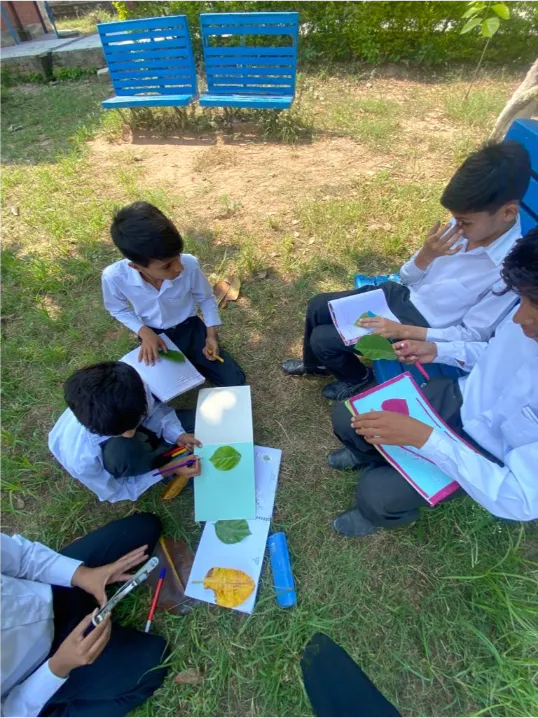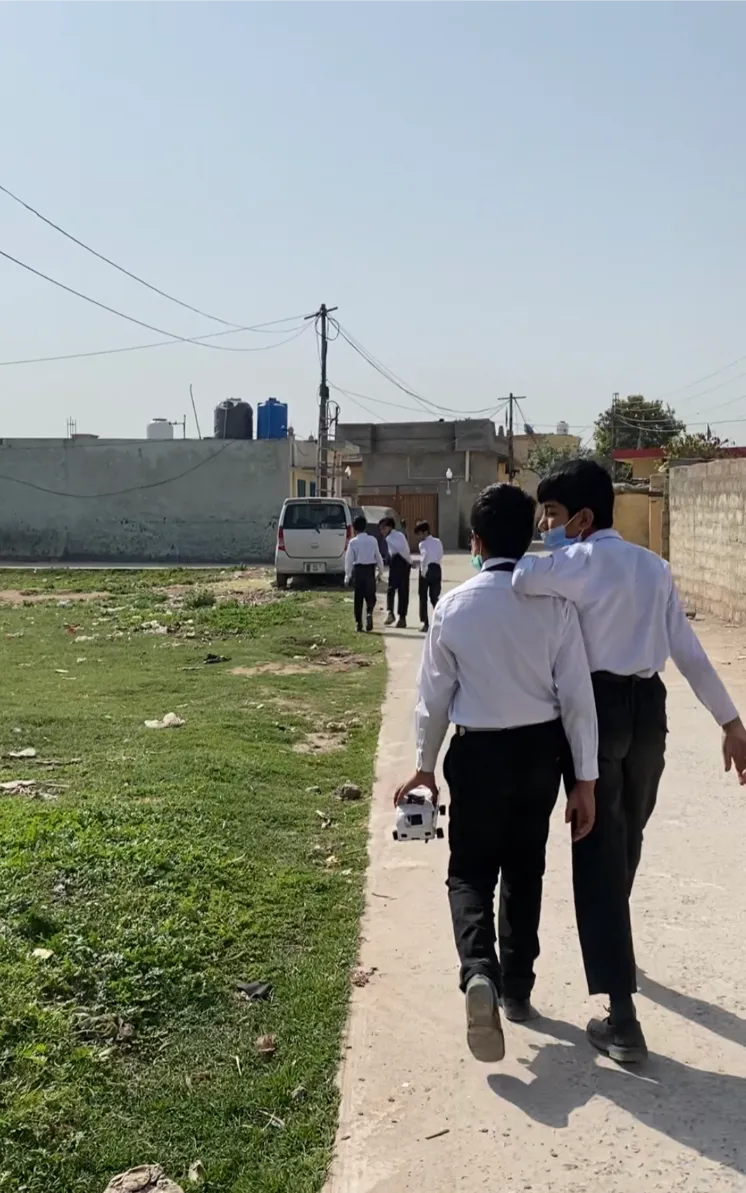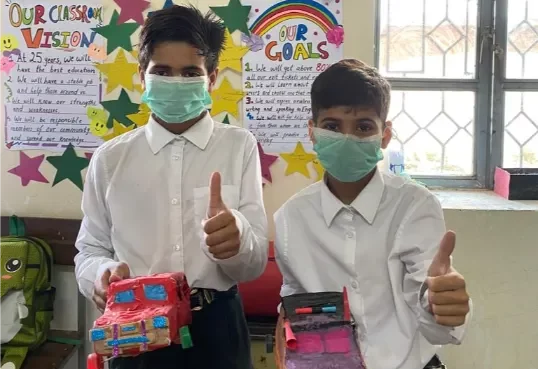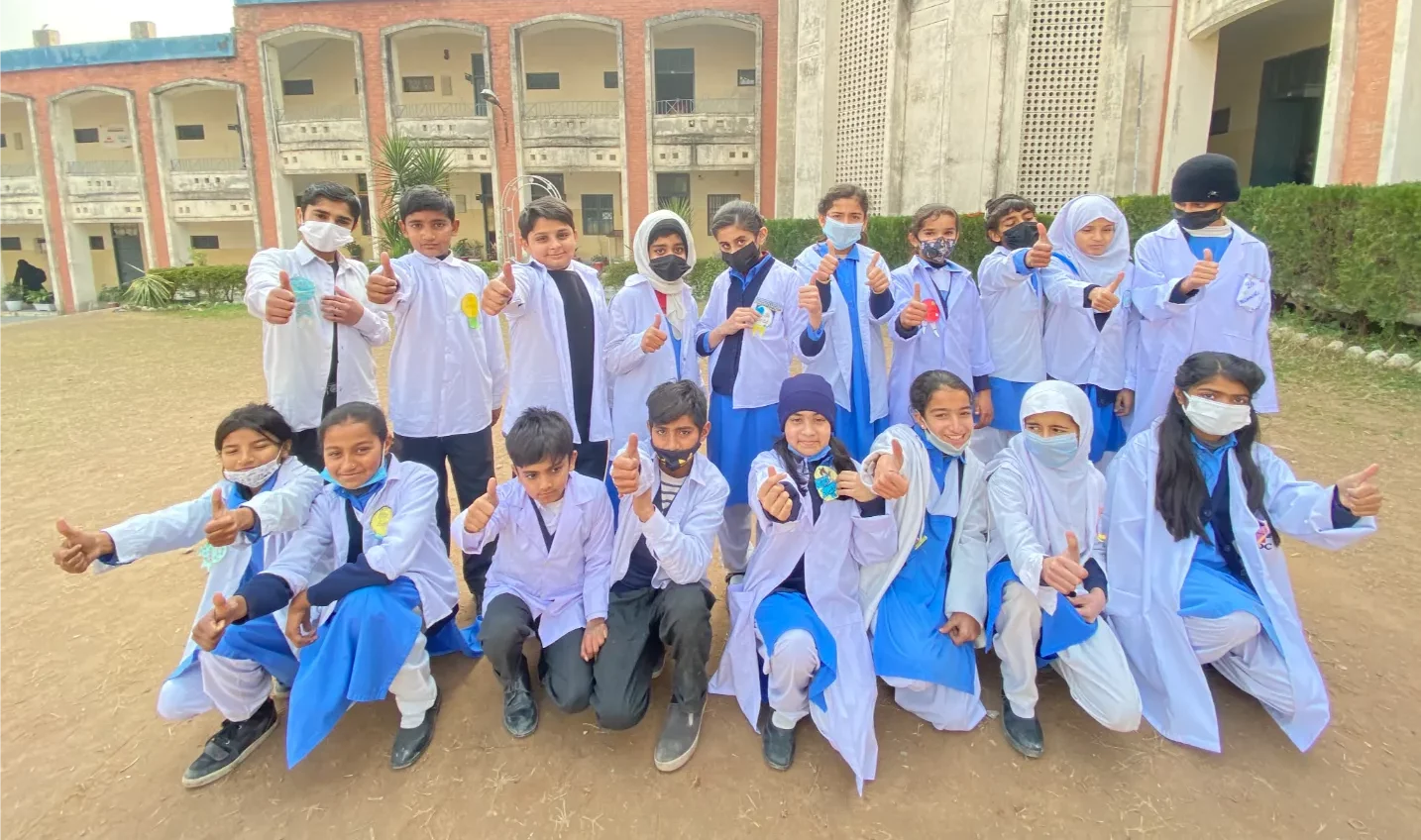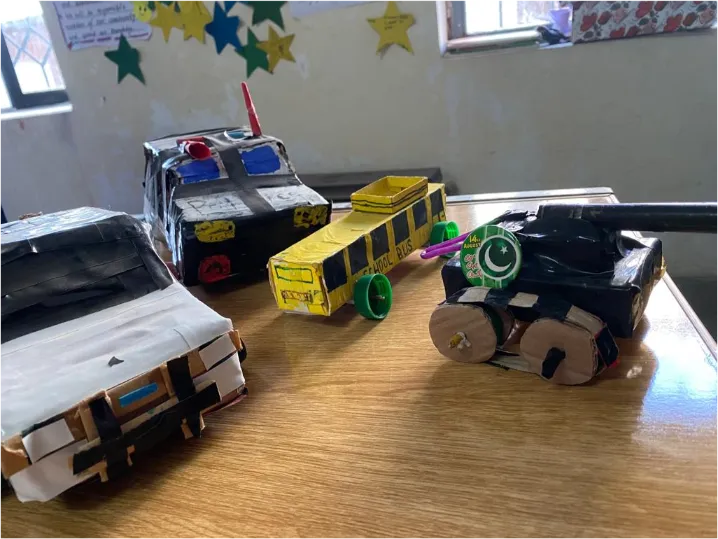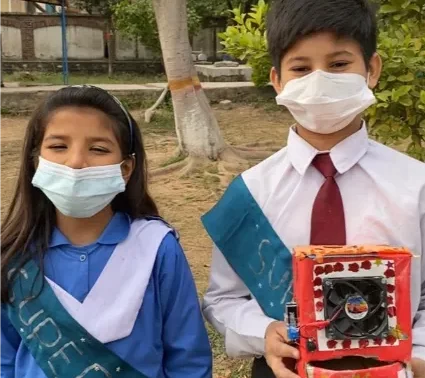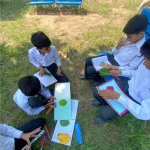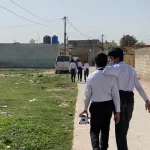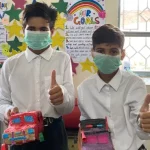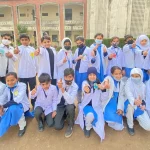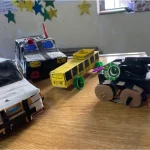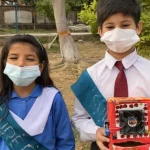Teacher: Maha Shoaib, Rabia Tufail
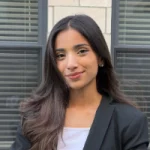
Maha Shoaib
Maha’s teaching journey of more than 2 years was driven by a passion for fostering positive change through education. Having instructed students aged nine to 11 at a public school in rural Islamabad, she observed a dearth of climate change education in a climate crisis-stricken nation. This led her to introduce this vital topic in the classroom, igniting curiosity and responsibility among her students. Witnessing their engagement and growth into community leaders who initiated climate actions underscored the transformative power of education. Maha’s impact was acknowledged by the Teacher Task Force at the United Nations Transforming Education Summit 2022. Currently pursuing a graduate degree in International Education Policy at the University of Maryland-College Park as a Fulbright Scholar, Maha concurrently serves as a Graduate Fellow at the Global Campaign for Education-US. Here, she actively advances collaborative initiatives for promoting SDG goal 4 through advocacy, public policy, strategic communications, and youth engagement.

Rabia Tufail
Rabia is currently a Learning Experience Designer at Taleemabad. She has accumulated about four years of enriching teaching experience. From helping freshman students developing a strong grasp over academic writing to helping Grade four and five students overcome their hesitation with speaking in English, she has so many wonderful stories and lessons to share. Her biggest achievement so far has been to help her students discover their individual voices, both in writing and in speaking. Rabia’s biggest inspiration in becoming a life long teacher/learner has always been her mother who considers it a duty to share her knowledge with others
Usefull links related to the Solution
Overview
Rabia and Maha, two teachers from Pakistan, set out to provide comprehensive climate change education to students in their school. They coordinated their efforts to provide learning about critical topics related to climate change and to empower students to affect change in their local community.
Theory of Change
The teachers identified that their students were receiving limited climate change education leading to students being unaware of the impact of human activities on climate change. Through providing comprehensive lessons to learners they aimed to decrease the climate change knowledge gap, specifically relating it to human activities. They also included learning on relatable climate change role models so the learners were exposed to concrete situations where young people, like themselves, had affected positive change.
Approach and Actions
Rabia and Maha coordinated their efforts to provide climate change literacy lessons to the students and to introduce young climate change role models. The students were then urged to react to the clear signs of environmental devastation that they saw around themselves, the teachers encouraged them to solve the issues they encountered.
Impact
Community waste disposal was identified by the learners as a pressing issue- provision was severely limited and rubbish was burnt, buried or discarded near the school leading to ecosystem disruption, increases in air pollution, greenhouse gas emissions and little to no recycling was taking place. This led the teachers to introduce the idea of the four Rs to students – refuse, reduce, reuse and recycle. One student, Abdullah, encountered an internal conflict as he wanted to make toy cars that were fully functional but was also deeply concerned about the environmental consequences of his actions. To solve this issue he decided to reuse discarded objects to make a ‘Franken Car’. He collected waste materials from the community and produced a toy car that is now enjoyed by the children in his class.
